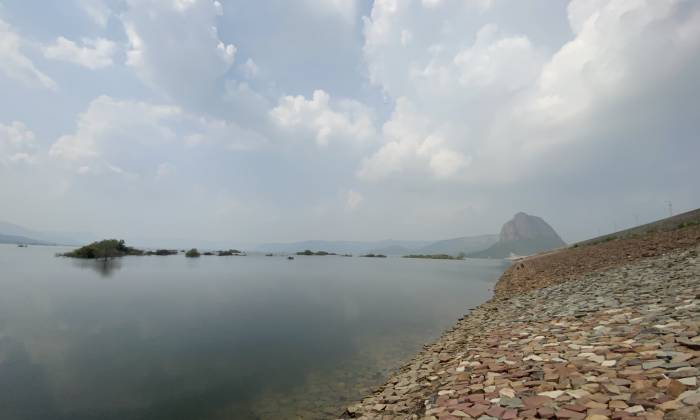— By Mohd Imran Khan
Patna/Colombo: A successful model of technology driven index-based flood insurance in Bihar, one of the worst flood affected states in India, won an international award. The Index-Based Flood Insurance (IBFI) designed scientifically to increase the resilience of farmers at increasing risk of floods due to climate change, has been awarded the 2020 GEO Sustainable Development Goals (SDG) Award in the Special Category of Innovation linked to SDG .
IBFI developed by Colombo based International Water Management Institute (IWMI) scientist Dr Giriraj Amarnath, Research Group Leader – Water Risks to Development and Resilience (WRDR).”The award is in recognition of the IBFI product developed by me and successfully implemented in flood prone Bihar’s districts”,Giriraj said.
A team led by Giriraj visited flood prone rural Bihar several times and spent days with farmers to understand their problems caused by floods. His team has developed a model of compensation of crop damage due to floods thanks to the high-tech insurance.
Dr Giriraj said early trials of the insurance were conducted during the 2017 and 2018 monsoon seasons in Bihar, India’s most flood-prone state. The results of these indicated that making such insurance schemes available across large rural areas could help bolster farming livelihoods, reduce post-disaster costs for governments and contribute both to SDG 13.1 and other goals related to reducing poverty, achieving gender equality and underpinning food security. Between 2017 and 2019, the IBFI scheme supported insurance payouts in India (USD 22,000) and Bangladesh (USD 31,500) to 1,306 out of 2,300 eligible farming households, helping increase their resilience to floods and minimize their vulnerability to natural hazards.
To enhance farmers’ resilience further, the scientists also experimented with bundling the insurance with weather forecasts, improved seed varieties, and guidance on climate-smart agronomy and water-management practices. Under the 2019 initiative Bundled solutions of Index insurance with Climate information and Seed systems to manage Agricultural Risks (BICSA), the scientists covered farmers in Bihar for both floods and drought. A total of 170 farmers received compensation to the value of INR 353,000 (around USD 5,000).
IWMI scientists now hope to make the flood insurance product available to many thousands more farmers by working in partnership with major insurance and development organisations. They are also working on a composite climate insurance product. This will use satellite-based indices in a similar way to the flood insurance, but will cover farmers for several climate perils at once, including floods, droughts, heatwaves, coastal inundation and cold spells. Again, seeds – both moisture and drought-tolerant – plus weather information and agronomic support will be bundled with the insurance to give farmers the best chance to cope if climate shocks take place.
Dr Giriraj said it is now clear that climate change is increasing the threat of flooding during the monsoon and causing extensive crop damage in large parts of India, putting at risk the livelihoods of millions of farmers.
He said IBFI is set to be beneficial for smallholders, who are particularly vulnerable to crop damage from extreme weather events. “Climate change threatens to unleash more frequent floods. Satellite-verified flood insurance can underpin smallholder farmers’ livelihoods, as well as helping nations meet global development goals,”
According to him, climate change magnifies the risk of disasters and increases their costs. As the climate system has warmed, the number of weather-related hazards globally has tripled, and the number living in flood-prone areas and cyclone-exposed coastlines has doubled. This trend is expected to increase.
As per the official website of the Water Resources Department, Bihar is the most flood-affected state of the country, accounting for close to 17.2% of the total flood-prone area in the country. Out of 94.16 lakh ha of geographical area, 68.80 lakh ha (76% of North Bihar and 73% of South Bihar) is flood prone. Presently, 28 out of 38 districts of Bihar are flood-prone.
(Mohd Imran Khan is a senior journalist based in Patna)





